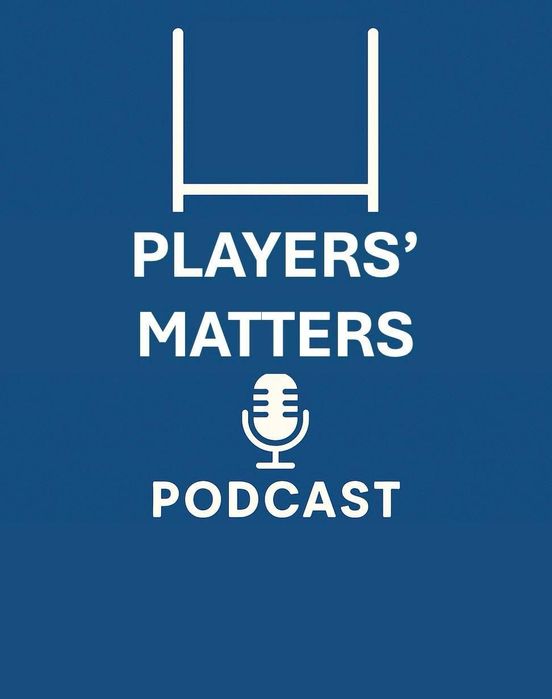Players Matters - Christmas 2025
2025 in review
The Women’s World Cup was the jewel in the World Rugby crown this year. England’s home victory over a high-quality and resilient Canadian team capped a tournament that broke records across the board. One of those records was compliance with instrumented mouthguards (IMGs), which we have now used in the elite game for four years to measure head accelerations associated with head impacts. At the World Cup, 90% of players wore an IMG, generating more than 20,000 head acceleration events (HAEs) across the tournament. We also successfully introduced an LED indicator to the device, further improving on-field recognition of players who had experienced a significant head impact.
When we first introduced IMGs into the sport, the long-term objective was clear: to support better load management. The principle that “you can’t manage what you don’t measure” has guided this work from the outset. As our focus expanded beyond concussion alone, it became increasingly important to understand the full profile of head impacts experienced by players, not just the most severe events.
Over the past two years, we have taken important steps towards that goal. IMGs were mandated as part of the HIA process at the start of 2024 to drive compliance above 70%. With that benchmark achieved, we have now collected data from more than 250,000 HAEs, averaging around 600 per match. Importantly, this scale of data has allowed us to move from measurement to action.
Moving from measurement into management
One outcome has been the development of a set of recommendations through a robust consultation process led by Leeds Beckett University and approved by our Concussion Working Group. These recommendations identify players who consistently experience higher-than-typical HAE loads and support targeted interventions to reduce their exposure. These interventions may include managing match exposure and implementing technique-based changes aimed at lowering the risk of head accelerations. A paper describing the process and the detailed recommendations has been submitted to the British Journal of Sports Medicine, with publication expected in early 2026.
In parallel, we have launched a project focused on how head acceleration data can be incorporated into long-term player development. Early IMG findings showed that only around 50% of tackles and carries, and 30% of rucks, resulted in an HAE above 10g—demonstrating that contact does not automatically lead to head acceleration. We also observed substantial variation between players, even when they played the same position and were involved in similar numbers of contact events.
These findings open up a compelling opportunity. By identifying players who appear relatively “protected” from HAEs, we can begin to understand what contributes to that protection and apply those insights to players who appear more vulnerable. This project is now underway, with 2026 focused on translating our medical and scientific insights into practical language that resonates with coaches and players, ensuring the work supports their needs and encourages genuine collaboration.
Bringing the IMG to community rugby
Our use of IMGs is also expanding beyond the elite game. Having first conducted a study in community rugby in 2021, we will return to the community setting in 2026 with a global study across at least five countries. The aim will be to measure head accelerations in both youth and adult players and to use those data to guide better prevention strategies and management of head impact exposure at all levels of the game.
Tackle height in the community game
On the subject of community rugby more broadly, our global study on reducing tackle height has now concluded. The study involved eleven unions and multiple video analysts, who collectively coded more than 150,000 tackles to compare shoulder-height and sternum-height tackle laws. Two weeks ago, World Rugby announced that the lower tackle height would move from trial to full law in the community game. This decision was informed by the study’s findings, which showed small but meaningful positive changes in tackle behaviour, resulting in fewer head impacts for both tacklers and ball carriers.
The findings of this study have inspired a trial in the U20 Rugby Championships in 2026, where sternum tackle height will also be used. We are excited to see how the lowering the height in law interacts with all the other tools and ‘levers’ in the elite game to change behaviour, and will report on our findings from that trial in mid-2026.
Reflections on 2025 – a transitional year
Two lessons from the past year stand out.
The first is patience. Between 2021 and 2025, an enormous amount of work went into building the systems, partnerships, and compliance required to gather high-quality IMG data. In many cases, the insights we are acting on today are drawn from data collected several years ago. While it can feel like we are innovating in real time, the reality is that we have been earning the right to drive meaningful change by laying strong foundations. 2025 represents an important transition point—from learning and measurement to action and application.
The second lesson is the importance of language and shared ownership. To realise the full value of IMGs, we must translate medical and scientific insight into themes, priorities, and language that resonate with coaches and players. 2026 gives us the opportunity to complete that journey. Having built the systems, gathered the data, and learned the lessons, our focus now is on how this work is understood and applied. By aligning with coaches and players around the right language and shared priorities, we can ensure IMGs move from measurement tools to meaningful drivers of better decision-making, safer practice, and improved performance across the game.
As we close the year, I would like to wish everyone across the global rugby community a joyful holiday season. Whether you are celebrating Christmas, enjoying festive rugby, or simply taking time to rest, may this season bring you happiness and connection. We look forward to building on this year’s progress in 2026, working together to make rugby safer, stronger, and even more rewarding for all.
Prof Éanna Falvey





